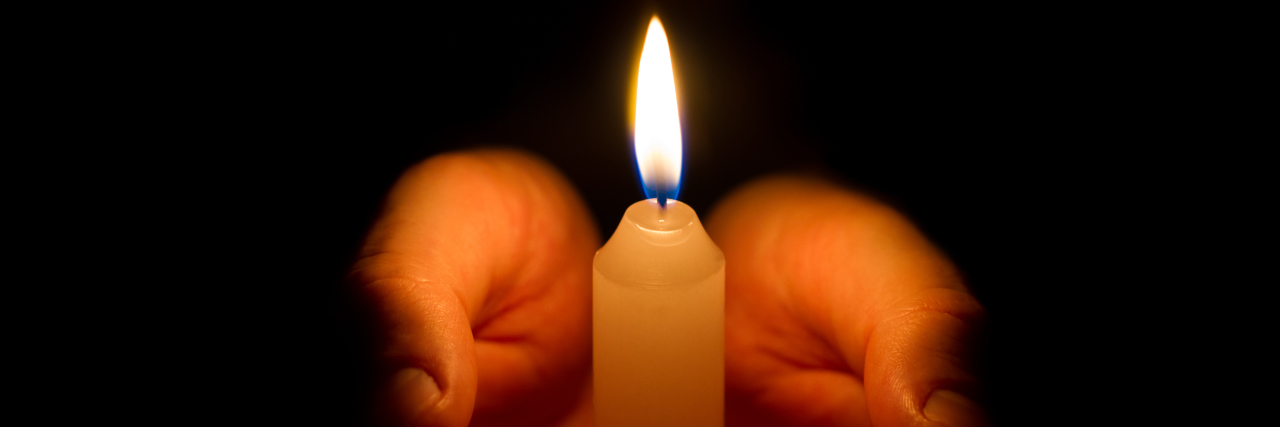Note: This post discusses the topic of filicide and violence against people with disabilities. Take caution in reading, and be mindful of how it may impact you. Your mental health is always important.
On March 1, my college campus will feel a little different.
Usually March is the month of midterms, spring break, and a slight weather change for the better. You begin to dream of no longer needing that wool coat and scarf; instead, you stare longingly at those shorts you’ve been dying to wear since October rolled around. People begin to see the end of the semester coming near, and it’s exciting.
But not that day.
You see, the first of March is a different day. It will feel more like shadows, the brisk cold wind still rushing past my face. It’s still winter, a bit darker and cooler than I’d like. Even so, there’s still a tinge of hope every time I step into a sun ray’s path.
March 1 is the Disability Day of Mourning.
Created in 2012 in response to the death of George Hodgins, an autistic man, the Disability Day of Mourning vigil is held each year to commemorate the lives of people with disabilities who have been murdered by family and caregivers. The Autistic Self Advocacy Network tracks cases of filicide, and each year, the names of the dead are read out loud. In the last year alone, more than 100 cases have been reported.
Sounds horrific, doesn’t it?
Yet people will defend the murders as “mercy killings” or “understandable.” They try to justify it as “a lack of resources” and say “it’s just so hard.”
This is where the problem lies. This is why our children, teens, and adults with disabilities are dying. Parenting and being a caregiver is hard, but that will never justify filicide. They never say these things about typical children’s deaths; why should a child’s disability change that?
Society and our culture often views disability as a fate literally worse than death. Autism is feared so deeply that our society shuns those on the spectrum and grasps at straws to “cure” us — when we are literally begging for supports, accommodations, and our voices to be heard instead. Intellectual disabilities are so stigmatized that people may forget the joy and beauty each person brings to the table.
This stigma, negativity and fear is exactly why people are dying. People get so convinced that disability is the worst thing to ever happen to someone, and decide our lives are less because of it. They decide that being a caregiver is just too much, and they choose to kill us because they think we’re the problem.
We’re not the problem. We have never been the problem at all.
As an autistic person with mental and physical disabilities, my life is automatically seen as less in the eyes of some. I already struggle with chronic depression, but the outside world has much more to say. I am painted as a burden by society, a drain on resources. I am seen as weak, weird and a liability. I am told all the things I will never do, and all the things I shouldn’t be allowed to do. Society tells me I will not have my own home or have children, and that I will never be able to live independently.
I have been told directly by others that I should not be allowed to live, and that I definitely should never reproduce, lest I continue to ruin the population. I could very easily be one of these statistics. Whether it be my autism, PTSD, brain injuries, or dysautonomia and use of a wheelchair and cane, I could easily be classified by society as a burden. Would my murder be considered a “mercy killing?” Some would say yes. At this point, it does not surprise me.
Society is wrong.
My life is not worth less just because I have a disability. I am disabled and I am allowed to take up space in this world just like anyone else. I am capable of experiencing love, joy, sadness, heartbreak, and the multitude of emotions that make up a life. Even if I live a life that is different, I am allowed to exist.
My community is entitled to the same human rights that everyone else has. We are allowed to exist.
We shouldn’t have to convince the world that we should be allowed to live; yet here we are. My community holds up a candle, a symbol of remembrance and illumination. We come together, whether in person or online, and we stand in solidarity with one another.
Here I am, a broken record constantly assuring myself and my community, “Yes, I belong. We all do.”
On March 1, light a candle for those we’ve lost — and those of us who are still here to fight.
You can locate a vigil near you on this site.
Getty image by Alexey R.

